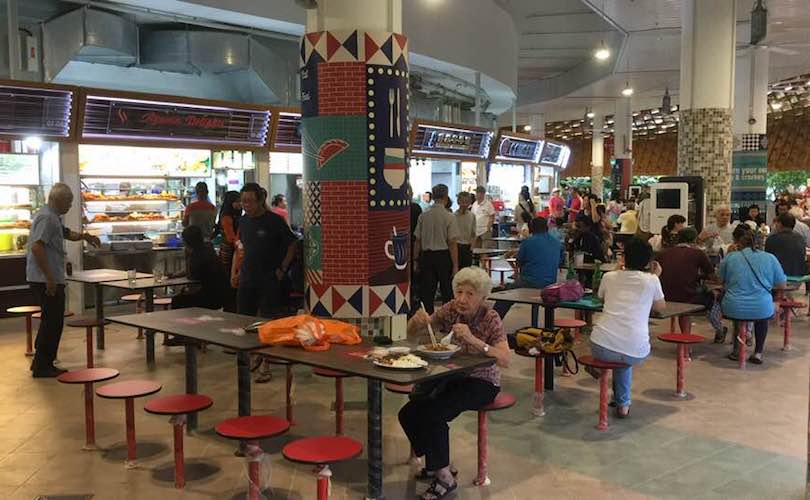As much as local food authority KF Seetoh appreciates the government’s recent efforts to enshrine hawker culture on the world stage, the outspoken founder of Singapore food bible Makansutra is taking issue with how Social Enterprise Hawker Centres (SEHCs) are being run.
These newer hawker centers are different from standard open-air food complexes in Singapore; SEHCs are run by social enterprises with the purpose to keep dishes affordable. These social enterprises — such as NTUC Foodfare — will help hawkers to allay costs by purchasing basic items such as rice, eggs, and cooking oil in bulk. Tenants at such hawker centers could also be paying subsidized monthly rents.
But Seetoh believes that hawkers at SEHCs are currently at the losing end, thanks to some questionable operational practices that he found out. According to a post made on Tuesday on the Makansutra website, he heard rumours that some private companies — which registered themselves as social enterprise organizations — are running SEHCs like commercial food courts.
The big issue here is that hawkers are burdened with way bigger costs in SEHCs than standard food courts. Tenants in newly built hawker centres are paying an average of $4,000 monthly, which is higher than what it costs the highest bidder in Maxwell Hawker Centre. Some of the vendor contracts that Seetoh saw included clauses that stipulate separate charges for crockery washing, collection and return, a puzzling $600 monthly payment to the management for spot checks on food quality, and even monetary penalties if stalls aren’t operational for at least eight hours a day (minus the time needed for food preparation).
“Despite these startling high cost of operation and management fees, they are expected to offer at least one dish at below $3 in the menu,” wrote Seetoh.
“This is baffling and is totally ‘anti-ideals’ of the report. I know of some hawkers who will be quitting at the earliest chance as they know even private coffeeshop stalls in better locations offer cheaper rents with less stringent rules.”
The gripes with how SEHCs are being run is nothing new — since 2015, hawkers have noted how operational costs of running stalls in such places are much higher. Their issues could be aggravated by other matters such as the lack of manpower and low foot traffic.
Seetoh believes that the disconnect between the ideals of social enterprises and how they actually run the hawker centres could affect Singapore’s attempt to have its hawker culture included in the UNESCO Representative List of the Intangible Cultural Heritage of Humanity.
“I think the original noble intents were lost in translation in management — let’s get this back on track please,” he wrote.





Reader Interactions